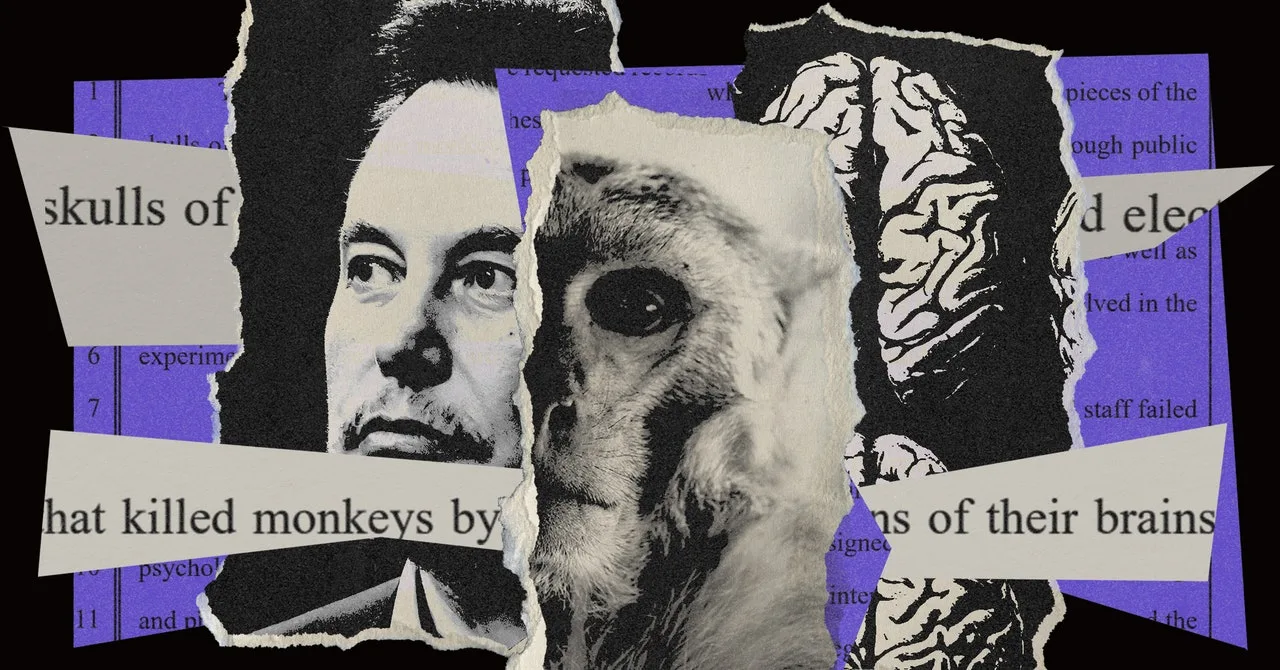Controversy Surrounding Neuralink Experiments on Monkeys
A macaque monkey suffered a tragic fate during an experiment conducted by Neuralink, Elon Musk’s brain-computer interface company, at the California National Primate Center in 2018. The monkey’s brain began to swell, causing severe neurological defects and unbearable suffering. Despite the staff observing the signs, including seizures and vomiting, the experiment continued for another day at the request of the Neuralink scientist.
An autopsy later revealed that the monkey’s brain had deformed and ruptured due to the pressure caused by Neuralink’s implant. The toxic adhesive used to secure the implant had leaked internally and caused inflammation. The monkey was ultimately euthanized to end her suffering.
This incident was a clear violation of the US Animal Welfare Act, which sets standards for the treatment of research animals. However, no consequences were enforced because the center had voluntarily reported the violation. Neuralink was also not legally liable as the implant itself did not directly cause the monkey’s death.
The controversy surrounding Neuralink’s experiments extends beyond this one case. Records obtained by WIRED indicate that there is a lack of transparency regarding the experiments conducted at the primate center. Hundreds of photographs taken by the center’s staff during Neuralink’s tests remain undisclosed, and videos of the experiments seem to have vanished. The primate center allowed Neuralink to store its own footage and remove it from the premises at their convenience.
It appears that Neuralink had significant control over the information that UC Davis, the home of the primate center, could share about the experiments. Secrecy and fear of public backlash were prioritized, leading to strict limitations on access to visual evidence. While UC Davis argues that the photographs have value in informing future research, they refrain from releasing them due to concerns about public misinterpretation and potential harm to researchers.
Neuralink’s work involved invasive procedures on macaque monkeys, such as drilling holes in their skulls and inserting electrodes and titanium plates. The conditions under which these experiments were conducted have raised ethical concerns. An ex-Neuralink employee revealed that poor planning and procedures, including the lack of crucial personnel, increased the risks for these animals.
The Physicians Committee for Responsible Medicine has filed a lawsuit against UC Davis to gain access to the records of Neuralink’s work. The committee argues that the public has the right to know about the suffering caused by taxpayer-funded animal testing. It accuses Neuralink of misleading the public about the nature of the experiments and their potential benefits.
UC Davis has withheld hundreds of photos depicting the results of Neuralink’s procedures. The university argues that releasing these photos could have detrimental effects on research, citing potential harassment of public employees. The dispute revolves around the balance between public transparency and the safety and progress of scientific research.
Neuralink severed its partnership with UC Davis in 2020. However, it reportedly continues to employ the same neurosurgeon and staff responsible for the controversial experiments on monkeys. Despite the ongoing controversy, Neuralink is moving forward with human trials after gaining approval from the US Food and Drug Administration.







